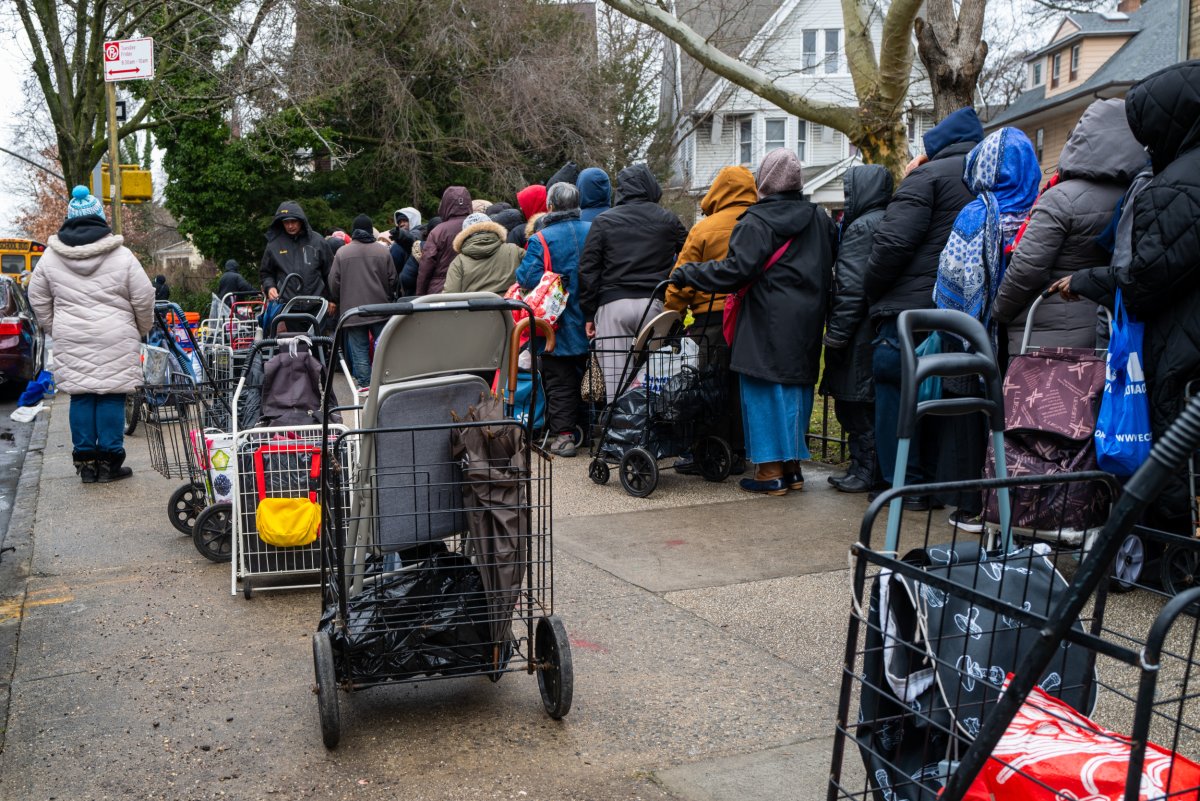The pain in my father's eyes is a sort of memory seared so thoroughly that I will never forget it.
There he was, aged 41, in the back of a police cruiser as I stand outside looking back at him, myself frozen in time. His sharp, deep blue eyes were not onlooking some boyish mishap of mine or expressing a sense of fatherly pride.
He sat there, handcuffed, utterly defeated by life.
Only moments earlier, on a cold, damp January 2007 day along the hills of East Tennessee, my father and I hastily packed whatever personal belongings we could salvage out of our recently foreclosed house.
After taking a bad loan and not consistently holding jobs, he had fallen well behind on mortgage payments. Despite episodes of sacrificing payments for water, power, or gas, the money had run out, and no lender was interested in assisting.
A few short years earlier, our family swiftly exited our home in Maine following a similar situation. My dad's once healthy painting business had gone under as the construction projects began to cool.
Selling to the first bidder, he sold whatever he could. We packed a Budget truck and headed to the Sunbelt, where residential housing appeared to be growing.
Little did we know that packing and leaving in the dead of night would become routine for our once relatively stable nucleus.
Back in East Tennessee on that January day, my dad and I were scrounging what we could into his dilapidated early 90s van—a true jalopy we endearingly named the Hummer, far from the quality of pickups he periodically traded for only years prior.
Packing our most valuables—vital documents, photos, clothes, expensive items—we knew there was a decent chance the local sheriff's department could make a visit. Sure enough, a team of cruisers arrived within about an hour of gathering.
Knowing that the final eviction process was beginning, we made our way toward the back entrance to show ourselves.

At that moment, a series of gunshots were fired. The Union County sheriffs fired rounds toward our dog, leashed outside the home.
The engagement remained intense as we exited the house. Exposing my hands out of fear, peering over to see if the police killed my dog, I was then ordered to the ground.
Pounced on by an officer, handcuffed, and placed into the back of a cop car, the near future appeared bleak and cold. Fifteen years old, halfway through my sophomore year of high school, homeless, and without any foreseeable ease around the corner.
The police released me after a short time in the back of cruiser. Our belongings were thrown to the curb. Luckily, neither we nor the dog suffered any physical harm.
By chance, a good Samaritan passing by offered to lend his truck and trailer for our home goods.
I spent the rest of the afternoon reaching out to any acquaintances on my flip phone in hopes of getting a ride to pick up my younger brother from the local elementary school and making my way to the county jail to pick up the old man.
While my peers were cramming for geometry and attempting PRs in weightlifting class, my spiraling life accelerated as though it were in free fall due to some mysterious, unseeable causal forces.
We spent another year and a half in East Tennessee, bouncing around homes and couches, with even some nights in the Hummer. Again, down on his luck and strapped for cash, we would be out on the streets indefinitely by early 2008.
Luckily, the Bush administration directly distributed stimulus checks. This check gave us just enough to exit.
So again, we packed an old Oldsmobile as much as we could. Our remaining belongings stayed in storage, as we hoped to have the means to retrieve them eventually.
On a summer morning, we got on I-40 East and began our journey back to Maine, searching for something.
2008 marked the public realization of the nation's financial and housing downturn.
The crisis coinciding with a presidential election year saw a tired nation come out strong for Democratic nominee Barack Obama, campaigning on hope and change to right the ship headed for disaster.
Bouncing around Midcoast and Southern Maine during this pivotal change moment, the hope in the air among many locals was palpable. The order and conditions that began ravaging communities and generations might finally see some reprieve.
But that change never truly came.
Like so many others of my generation, I decided to join the military in search of some financial and social security. While I knew when and where I would be sleeping, eating, and bathing daily, the life I escaped hardly improved.
By 2017, at the young age of 51, my father died alone in a small boarding home rental in coastal Maine.
Leaving behind only enough for his sons to pay for his arrangements, whittled down to only a few minor possessions and a spirit broken by shouldering a piece of the contemporary American reality.
No home, no property, no stability, no hope in sight.

Coincidentally, 2017 marked year one of the first Trump administration. We were all collectively entering a new era of American politics. No amount of hope or soft resistance could possibly restrain the trajectory of the new politics.
While the living conditions continued to dwindle, the discourse and remedies offered by the political parties could not correct themselves to address legitimate needs. Hence, the rise of Trump and Trumpism.
Of course, any politician in this environment offering to get the trains to run on time could earn majorities. And while the fire of Trumpism has been tamped down from time to time over the last decade, the continued blatant and intentional failures of the Democratic party pour high-octane gasoline on this volatile political moment.
Millions are in need or near need. Many are one paycheck or one medical bill away from being out on the streets. Skyrocketing home buying costs are muscling significant portions out of the real estate market.
And where is the Democratic party?
While the Democrats have spent decades loosely communicating using progressive-styled language, their true intentions have far from matched their goals.
When challenged publicly, critics are belittled and shunned. When challenged electorally, the whole might of the party gets deployed to kill away the competition.
It is, as of late, obvious that the true enemy of the party is the voice of the working people and their strongest advocates.
It is no wonder that, despite gross inauthenticity, Trump and company's simplistic messaging about fixing any number of problems and poking the system in the eye is satisfactory enough for a significant amount of the working class to cast support.
Who else even bothers to pretend to have our back?
The contempt of the working man and catering to the most fortunate among us will only continue to depress turnout and membership for the Democratic party in the long run.
While strategists, media figures, and campaign managers are cooking up a gameplan to pounce on Trump's antics in the hope of picking off some seats over the next couple of years, 2024 should be a lesson that America is far more exhausted with do-nothing Democrats and no longer have an appetite for their hollow words and condescension.
For anyone generally interested in improving the conditions of the American family and neighborhood and reversing fascism's march, clear eyes are imperative.

If the Democrats want to call the working class back home, something must be on the table.
Bold and truthful economic compensation to correct the drainage over the last few decades is the only plausible antidote strong enough to counter otherism, nativism, and all other tools of fascism.
Limp assurances coupled with power protection will only continue to empower the competitive edge of trust currently held by the far-right.
The consolidation of power right-of-center and onward only guarantees another generation of unnecessary suffering and sorrow forced on the American people and advanced by the Democrats.
For the Democrats to be even remotely relevant to the American people for the remainder of the decade, they must understand and respond to American pain.
They must truthfully know the mountains of debt, the harsh policing in our streets, the ongoing mental health crisis, the ravaging of drugs in our families, the rising homelessness, the insufficient wages, and all other daily realities that suppress happiness and true liberty in this country.
The Democratic party requires a complete and total overhaul, as the status quo offers little to nothing for most people.
Using the power of elections, American voters must organize their honest interests at the lowest levels and begin systematically regrowing the party at its roots.
To place blind faith yet again in this shell of a party, its pundits, and its influencers is strategically foolish, as it is a lost cause that will only see liberal leadership delivering for fascism and the ultra-wealthy.
American people: Channel your pain, focus your hopes, and rage against the Democratic party by taking it for yourselves.
Abe Aldus is a current graduate student at the University of Nevada, Las Vegas and is a U.S. Army veteran.
All views expressed are the author's own.
Do you have a unique experience or personal story to share? See our Reader Submissions Guide and then email the My Turn team at myturn@newsweek.com.



















:quality(85):upscale()/2024/04/24/878/n/3019466/36c5693c662965c5d1ce91.72473705_.jpg)
 English (US) ·
English (US) ·